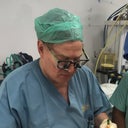Posted underTummy Tuck q&a
Answers (9)
From board-certified doctors and trusted medical professionals
Dr. Joshua Cooper, MD, FACS

JF
Dr. Joshua Cooper, MD, FACS
Board Certified Plastic Surgeon
Answer
Dr. Gary Lawton, MD, FACS

GF
Dr. Gary Lawton, MD, FACS
Board Certified Plastic Surgeon
Answer
Dr. Farah Naz Khan, MD

FM
Dr. Farah Naz Khan, MD
Board Certified Plastic Surgeon
Answer
Dr. Jourdan Gottlieb, MD
JM
Dr. Jourdan Gottlieb, MD
Board Certified Plastic Surgeon
Answer
Dr. Mark D. Wigod, MD
MM
Dr. Mark D. Wigod, MD
Board Certified Plastic Surgeon
Answer
Dr. Francisco Canales, MD
FM
Dr. Francisco Canales, MD
Board Certified Plastic Surgeon
Answer
Dr. Robert E. Zaworski, MD (retired)
R(
Dr. Robert E. Zaworski, MD (retired)
Board Certified Plastic Surgeon
Answer
Dr. Leonard Hochstein, MD - Account Suspended
LS
Dr. Leonard Hochstein, MD - Account Suspended
Board Certified Plastic Surgeon
Answer
More Tummy Tuck Questions
See all Tummy Tuck Q&A
WE SEND PRETTY
EMAILS
What’s trending? Who’s turning heads? Which TikTok myths need busting? We’ve got you. No fluff, no gatekeeping—just real talk. Get our free, unfiltered newsletter.




